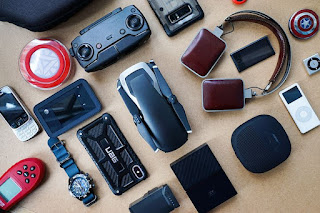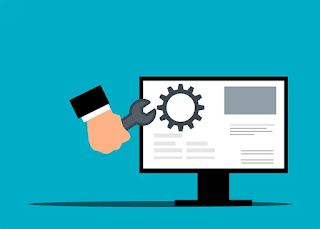When you use a smartphone, do you think that many rare metals of the earth are required to make it, and mining them contributes to the carbon footprint of the device? Similarly, when you use a computer or a CRT monitor, do you ever think that 48 pounds of chemicals, 1.5 tons of water, and 530 pounds of water were used to produce the same. No? Well, it’s time you learn about e-waste, tech’s big secret, and how you can help reduce it.
The Rise of E-Waste
Electronic waste or e-waste refers to any
discarded device which can be plugged into an outlet or uses batteries. In
2019, we produced 53.6 million tonnes of e-waste, and just 17.4 of it was documented
as collected and recycled. WHO predicts that e-waste generation might reach 74.7
million tonnes by 2030.
Canada generated about 638,300 tonnes of
e-waste in 2017. This number is expected to rise significantly in the next few
years unless we do something about it.
The Reasons
There are many reasons why e-waste is
rising. Some of them are rapid adoption of new technology and discarding the
old, software support obsolescence, poor repairability, and battery degradation.
How Does E-Waste Damage the Environment?
E-waste is a big problem when waste
disposal is not done properly. There is often an illegal export of e-waste to
ineffectively managed landfills in developing nations. It endangers the environment
and impacts the citizens (health
risks) of the developing countries. Developing countries agree to the
exports as they hope to find rare metals.
How Can You Help?
> You can help reduce the e-waste by adopting
some or all of the following strategies.
> You can demand that your government
representatives take stronger actions to control and properly dispose of
e-waste.
> When purchasing new gadgets, ask yourself
whether you want them or need them.
> Take care of your devices so that they last
longer.
> When buying, seek companies/products with environmentally-focused
certifications like Energy Star that promote sustainability.
> Donate used electronics to those in need.
> Drop off the unwanted electronics at local
recycling centers.
Remember to Remove All of Your Data
When disposing of the e-waste, you need to
remember to protect your privacy by removing all data from your device. You
don’t need to be a tech expert to delete the data. You can easily do it
yourself. If you own an iOS or Android tablet or smartphone, you can safely
perform a factory reset to delete all data. Go to the settings section and
search for the factory reset option. It will hardly take a few minutes.
Removing your SIM card from the phone or
tablet is also smart. Also, remove any microSD card you might have added to the
device.
When disposing of desktops or laptops, you
can use any free downloadable software to erase your hard drive. It is also
known as “shredding” a drive. You can try free tools such as CBL Data Shredder
and Eraser, which are quite effective.
Sources:
https://www.itworldcanada.com/article/e-waste-techs-big-dirty-secret/481142
https://www.aarp.org/home-family/personal-technology/info-2022/recycle-your-technology.html



